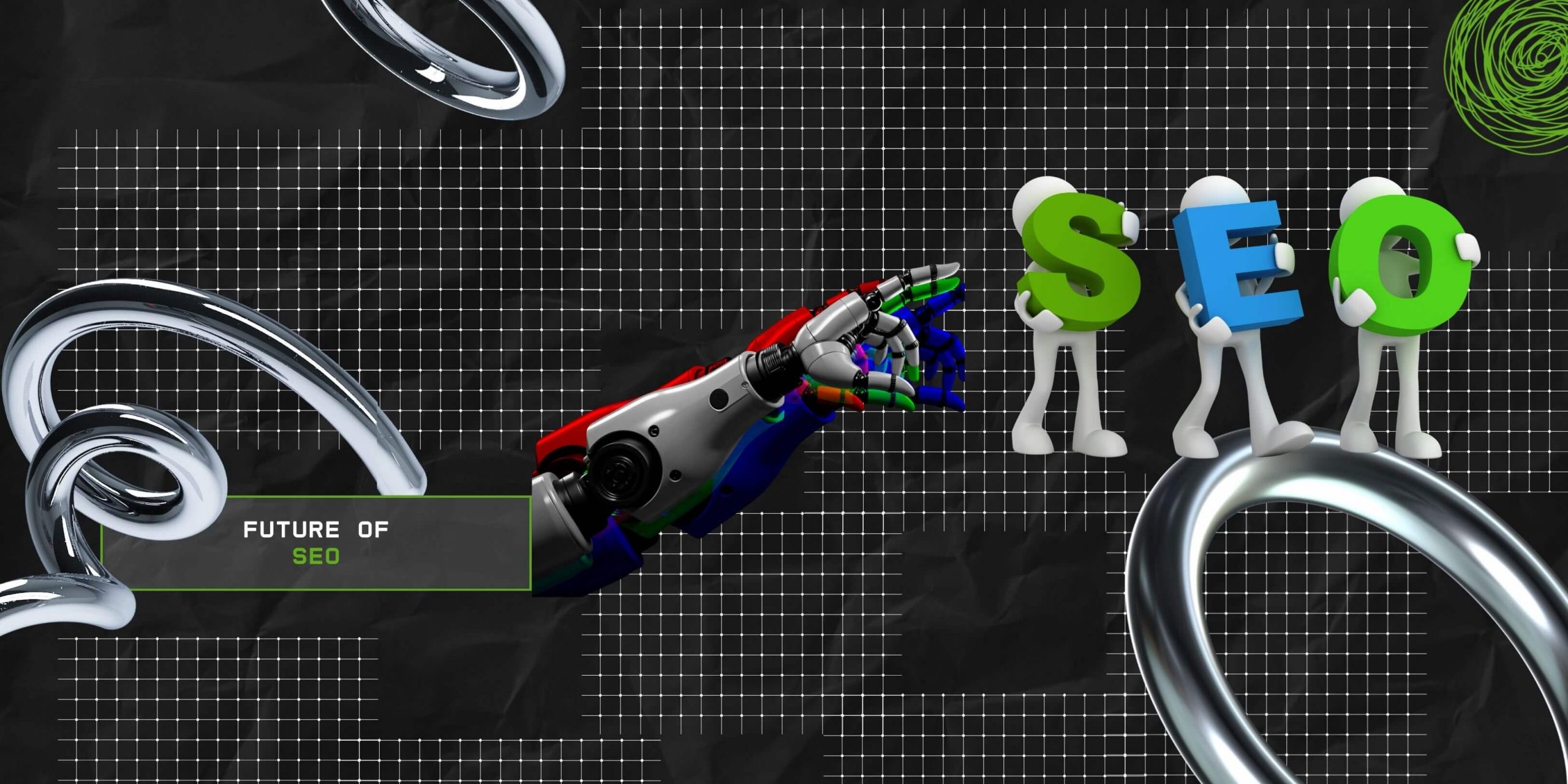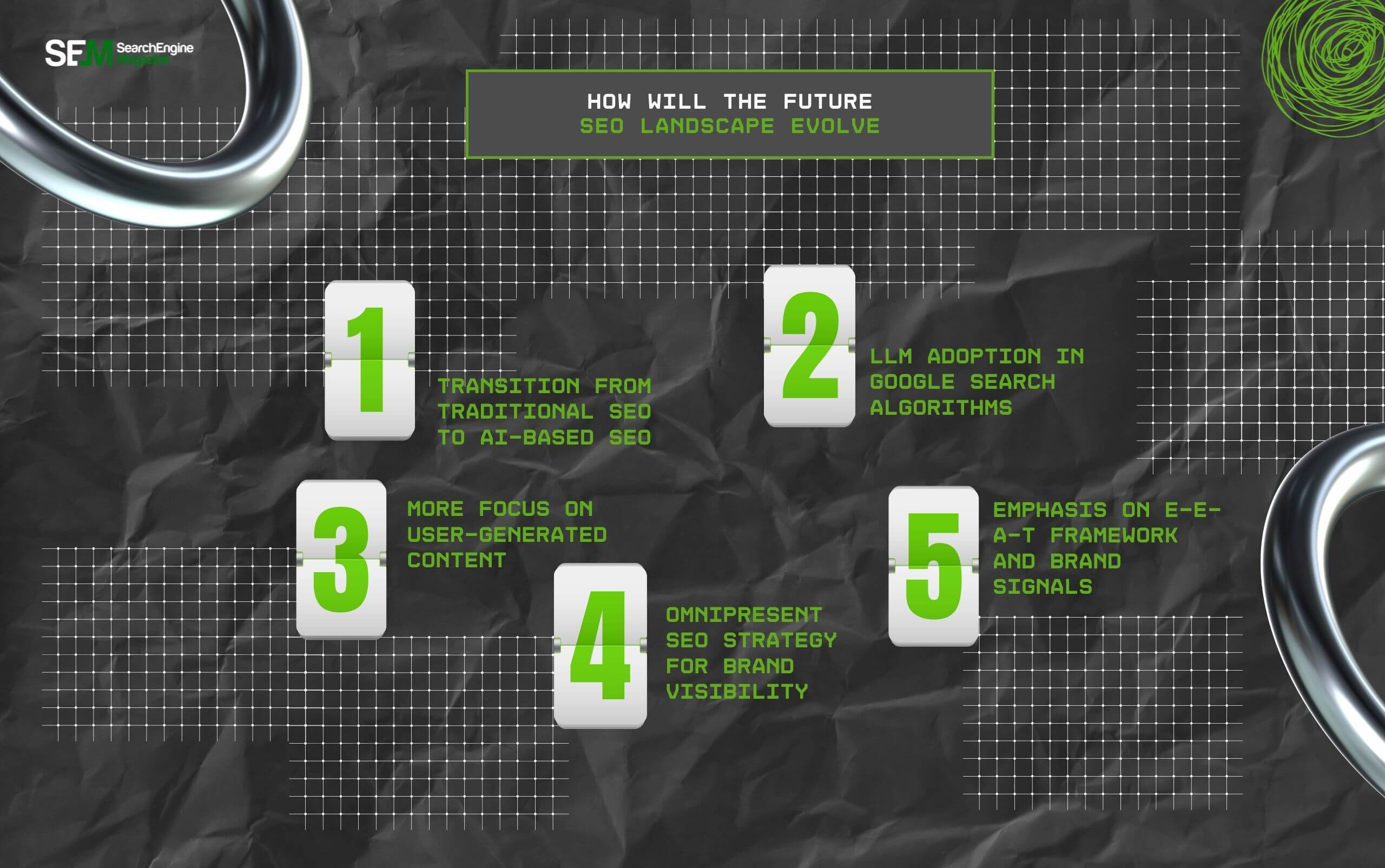What Does FS Mean In Text? Decoding The Social Media Lingo
Feb 17, 2026

Feb 17, 2026

Feb 16, 2026

Feb 14, 2026

Feb 13, 2026

Feb 13, 2026

Feb 13, 2026

Feb 12, 2026

Feb 12, 2026
Sorry, but nothing matched your search "". Please try again with some different keywords.


Working as a content creator and blogger, SEO has become an integral part of my life.
Be it writing a blog or crafting social media content, following the optimization strategies has become my habit. This way, I can create interactive content that drives organic traffic.
While working with SEO, in the past decade, I have literally witnessed how SEO has changed with every little tweak in the search engine algorithms.
So, it’s natural to have questions about the Future SEO.
And, with generative AI on the rise, questions like— “Will SEO remain relevant after 5-10 years?” or “Will it be massively impacted by the evolving search engine features?” — bug me a lot.
So, in today’s blog, I am going to break down the future of SEO strategies with the changing algorithms by exploring—
Stay tuned!

First things first, SEO or Search Engine Optimization is a set of practices and digital marketing strategies that help in ranking on Google’s SERPs and improving website visibility.
So, when managing a business digitally, SEO is very important. And, taking the help of SEO services like Copify can improve your SEO performance.
By following its best practices, you can easily enhance organic traffic and audience engagement with your content.
Moreover, SEO practices prioritize user intent and audience behaviour.
So, when you create content based on that, it reaches your target consumer base. Converting new customers efficiently.
In addition to this, the right SEO strategy can help in building the brand reputation and improve your credibility.
And, what do you gain with that? — Brand recognition and loyal customers.
Honestly, organic SEO and search engine algorithms are intrinsically connected. So, it is impossible to imagine one without the influence of the other.
Search engine algorithms decide how websites rank for search queries.
Given that SEO practices focus on optimizing content to help it rank in SERPs, it attempts to understand how the algorithms function.
This way, it can craft effective strategies aligning with the ranking factors. So, when these strategies are followed, your website visibility will dynamically improve.

Now, technology is advancing, and new innovative features are being integrated into the search engine algorithms. So, naturally, SEO strategies are evolving.
In 2025, Google search results come with AI Overviews for every topic, giving a comprehensive summary for the search query.
According to a report in Backlinko, “#1 result in Google’s organic search results has an average CTR of 27.6%” — highlighting the relevance of ranking on AI Overviews.
So, traditional SEO is also transitioning into AI-based SEO or GEO.
Now, instead of only focusing on keyword relevance, the new GEO (Generative Engine Optimization) practices focus on user intent, niche-relevant information, and AI-driven strategies.
And, the future SEO optimized content will need to have—
So, with the advancement in AI technology, the SEO strategies are changing from traditional keyword research to more AI performance-focused.
In addition to this, the emergence of LLMs has dynamically changed the search landscape. People are using the LLMs more than the traditional Google search bar.
Given that LLMs provide more structured and direct answers to the search query, users are finding it more helpful and efficient. So, Google also introduced its Gemini 2.0.
Unlike the other LLMs, Gemini provides answers in natural language and synthesized responses. So, people are choosing it to get the exact answer within seconds instead of scrolling through a lengthy article.
Naturally, in the future, ChatGPT and Geminis are going to become more popular search tools than Google. So, SEO practices will change to align with these models’ ranking factors.
With user-generated content, it is easier to connect with your audience and make your brand resonate with their intentions. So, it is a new trend in SEO to focus more on UGC content creation.
According to the report by Shopify, by the end of 2030, UGC will drive around “80% of SEO-enhancing content”. So, it is going to be rewarded by Google’s algorithms.
Given that AI-generated content has spread massively, people are still looking for human-generated content for authenticity and human credibility.
That’s where UGC is bagging the market competition. So, sites that are focusing on providing UGC content are gaining more organic traffic and engagement.
Apart from the above practices, omnipresent SEO is becoming more relevant for optimal brand visibility.
Given that the audience base is spreading across multiple digital platforms, building an online presence only on Google is not enough.
So, more and more businesses are taking the omni SEO approach to build their digital presence across different digital platforms. This way, they can gain better visibility and reach the target audience.
And, in the future, social search is going to take over the traditional search engines. As the HubSpot report has identified —
“31% of consumers use social search when looking for answers to questions online, and 1 in 4 consumers aged 18-54 actually prefer social search over search engines”.
So, creating omnipresent content is the perfect strategy for Future SEO.
Even though Google is constantly tweaking its search engine algorithms, two ranking factors have remained unchanged — the E-E-A-T framework and brand signals.
So, in the future, brands need to focus more on these elements to improve their visibility on digital platforms as well as SERPs.
In addition to this, when you create E-E-A-T content, it gives you authenticity and authority. That is, increasing the quality of your brand signals.
So, naturally, the SEO strategies will change. Giving more priority to this framework and helping generate content that ranks in Google.
Now, future SEO must go beyond the superficial layer of SERP ranking factors and delve deep into how and where people search.
In addition to this, it needs to consider generative AI models’ influence on search dynamics while changing its practices.
Prioritizing innovative and human-centric perspectives over cut-and-dry content.
So, with changing algorithms, SEO cannot be only about optimizing pages.
It needs to transform into building a discoverability ecosystem — driving organic website traffic, audience indulgence, and contributing to business growth.
SEO strategy helps in optimizing content to rank on Google’s SERPs. So, with top-ranked content, it drives organic website traffic and reaches the target audience.
To improve organic search results, Google is regularly updating its search engine algorithms. So, to rank on SERPs, an SEO strategy needs to update its practices and elements in alignment with Google’s ranking factors.
SEO helps to rank content on the search results pages. So, the higher the content ranks, the more audience engages with it, which boosts website visibility and brand presence.
Barsha is a seasoned digital marketing writer with a focus on SEO, content marketing, and conversion-driven copy. With 8+ years of experience in crafting high-performing content for startups, agencies, and established brands, Barsha brings strategic insight and storytelling together to drive online growth. When not writing, Barsha spends time obsessing over conspiracy theories, the latest Google algorithm changes, and content trends.
View all Posts

